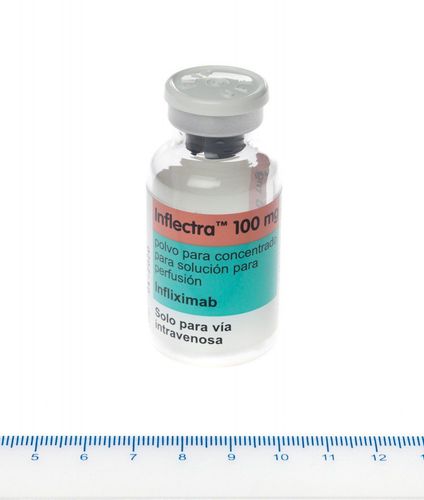This is an automatically translated article.
Sibutra medicine has the main ingredient is Sulfasalazine 500 mg, which is commonly used in the treatment of cases of ulcerative colitis, Crohn's disease, rheumatoid arthritis... Find out general information about ingredients , uses, contraindications, doses and side effects of Sibutra medicine will help patients and their loved ones improve treatment results.
1. What is Sibutra?
Sibutra drug is prepared in the form of enteric-coated film-coated tablets, with the main ingredients including:
Active ingredient: Sulfasalazine 500 mg. Excipients: Just enough for 1 tablet of 500 mg. Sulfasalazine is a compound of 5-aminosalicylic acid and Sulfapyridine. After being absorbed into the body, the diazo bonds of Sulfasalazine are cleaved by intestinal bacteria to form Sulfapyridine and 5-aminosalicylic acid or Mesalamin, which have antibacterial and anti-inflammatory effects. The enteric therapeutic effect of the Sulfasalazine in Sibutra is due to metabolites produced in the colon.
In addition, Sulfasalazine can also change intestinal bacteria, reduce E. coli and Clostridium in stool, and inhibit the synthesis of Prostaglandin, a substance that causes diarrhea and affects the transport of mucus. Change secretion and absorption of fluids and electrolytes in the intestinal tract. Sulfasalazine also has immunosuppressive effects, thereby contributing to the reduction of inflammatory activities in rheumatoid arthritis. Therefore, Sulfasalazine (Sibutra) is also used as a disease-modifying drug (DMARD) for the treatment of severe or progressive rheumatoid arthritis. Besides, Sulfasalazine (Sibutra) is often indicated alone or in combination with corticosteroids to treat active Crohn's disease, active ulcerative colitis.
2. What diseases does Sibutra treat?
Sibutra is indicated for the treatment of the following cases:
Ulcerative colitis bleeding. Active Crohn's disease. Rheumatoid arthritis in patients who have not responded to non-steroidal anti-inflammatory drugs (NSAIDs) or other analgesics. However, in the following cases, the drug Sibutra is not allowed to be prescribed:
Hypersensitivity to any ingredient of the drug Sibutra . History of allergy to other drugs containing the active ingredient Sulfasalazine, Salicylates or Sulfonamides. Porphyrin metabolism disorders. The patient has severe renal impairment. Intestinal or urinary tract obstruction. Children < 2 years old.
3. Dosage and how to use Sibutra:
3.1. Dosage 3.1.1. Adults Rheumatoid Arthritis
Initial dose (first week): Take 1 tablet (500 mg)/time x 1 time/day. Increase weekly dose by 500 mg/day to a maximum dose of 2 - 3 g/day, divided orally 2 to 4 times/day. Ulcerative colitis, Crohn's disease
Acute dose: Take 2 - 4 tablets (1 - 2 g) / time x 4 times / day until the patient responds. Can be combined with corticosteroids if necessary. Maintenance dose: Take 1 tablet (500 mg)/time x 4 times/day. 3.1.2. Children Treatment of exacerbations of moderate to severe ulcerative colitis, active Crohn's disease
Children 2 - 12 years: Oral 10-15 mg/kg/time x 4-6 times/day until disease response multiplier. The dose may be increased to a maximum of 60 mg/kg or 1 g per day. Children 12-18 years old: Take 2 - 4 tablets (1 - 2 g)/time x 4 times/day until the patient responds. Maintenance treatment of ulcerative colitis from mild to severe
Children 2-12 years old: Take 5 - 7.5 mg/kg/time x 4-6 times/day. The dose may be increased to a maximum of 500 mg in one day. Children 12-18 years old: Take 1 tablet (500 mg)/time x 4 times/day. Treatment of juvenile rheumatoid arthritis (teenage idiopathic arthritis)
Children ≥ 6 years old: Take 30-50 mg/kg/time x 2 times/day. The dose may be increased to a maximum of 2 g per day. Initiate the first dose should be 1⁄4 - 1/3 of the expected maintenance dose. 3.2. How to take Sibutra medicine Sibutra should be taken after meals or with food. Take the medicine with a full glass of water and use extra fluids throughout the day. The total dose of Sibutra in a day should be divided into several small doses. Do not chew the medicine.
4. Side effects encountered when using Sibutra
The use of Sibutra drug in high doses or for a long time, can cause side effects such as:
Common: Systemic symptoms such as headache, dizziness, dizziness, insomnia, fever. Hematologic abnormalities such as hemolytic anemia, macrocytosis, leukopenia. Digestive disorders such as anorexia, nausea, epigastric pain, abdominal pain. Skin reactions such as erythema, pruritus, urticaria. Temporary increase in liver enzymes, reversible decrease in sperm count. Uncommon: Fatigue, depression, tinnitus, agranulocytosis. Rare: Immune reactions such as serum sickness, angioedema. Hematological abnormalities such as agranulocytosis, thrombocytopenia, pancytopenia, macrocytic anemia. Pancreatitis, hepatitis. Skin reactions such as Stevens-Johnson syndrome, Lyell's syndrome, systemic lupus erythematosus, exfoliative dermatitis, photosensitivity. Respiratory symptoms such as respiratory distress, cough, alveolar fibrosis. Neurological symptoms such as bacterial meningitis, peripheral neuropathy. Urinary tract reactions such as proteinuria, erythrocytosis, crystalluria, nephrotic syndrome. Other reactions include joint pain, altered perception of smell and taste. Should stop the drug when detecting the above side effects or other unusual symptoms after taking Sibutra medicine, and promptly inform the treating doctor about the use of Sibutra medicine or immediately go to the nearest medical facility. to be dealt with in a timely manner.
5. Note the use of Sibutra drug in the subjects
Sibutra should be used with caution in patients with a history or ongoing hematopoietic disorders such as agranulocytosis, aplastic anemia, and glucose-6 phosphate dehydrogenase deficiency. Sibutra should be used with caution in the treatment of juvenile rheumatoid arthritis because of the potential for serum sickness-like reactions. Blood counts, liver and kidney function should be checked during treatment with Sibutra. Avoid using Sibutra in children under 2 years old because it can cause jaundice. Pregnancy: The U.S. Food and Drug Administration (FDA) classifies Sulfasalazine as a class B drug with no risk to the fetus, but only in a few studies. Therefore, caution should be exercised when using Sibutra in pregnant women. Lactation: Some studies indicate that sulfasalazine can pass through breast milk in small concentrations, and may cause complications such as severe hemolytic anemia. Therefore, extreme caution should be exercised when deciding to use Sibutra in this patient. Drivers or machine operators often experience side effects such as headache, dizziness, dizziness, insomnia ... after taking Sibutra. Therefore, avoid using drugs before and during work.
6. Sibutra drug interactions:
Interactions with other drugs
Drugs that reduce the bioavailability of digoxin when taken together. Sibutra inhibits the absorption and metabolism of folic acid, which may lead to a decrease in serum folic acid concentrations. Sibutra increases or prolongs the effects or toxicity of anticonvulsants, anticoagulants, antidiabetic drugs. Sibutra increases the toxicity of hemolytic agents. Sibutra drug increases the effect of Methotrexate, Sulfinpyrazone, Phenylbutazone when used concurrently. Above is the necessary information about the composition, indications, contraindications, dosage, usage and notes when using Sibutra. Patients and relatives should carefully read the instructions for use of Sibutra medicine and strictly follow the instructions of the specialist doctor or pharmacist to get the best treatment effect.













